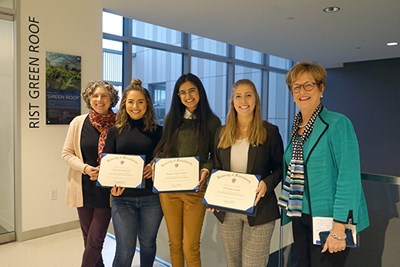Student Ideas Captivate Campus Officials During Climate Mitigation Challenge
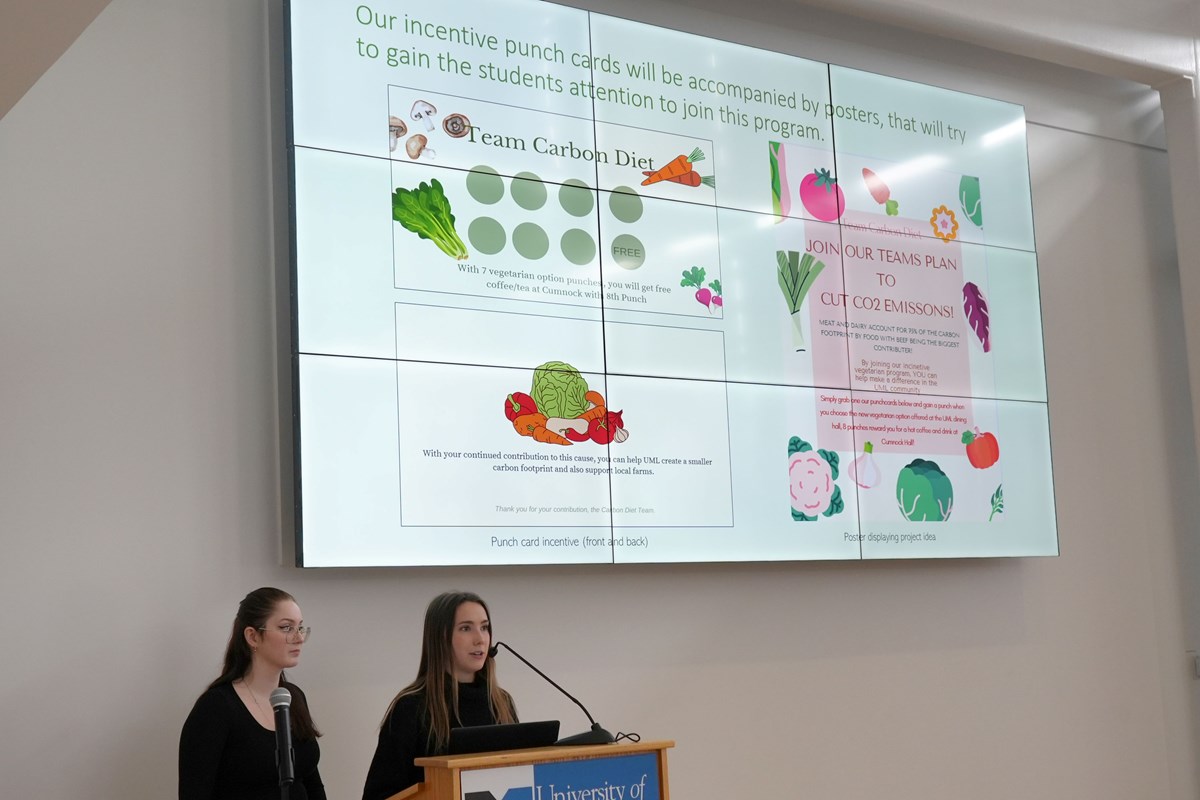 Image by Brooke Coupal
Image by Brooke Coupal
03/27/2024
By Brooke Coupal
Fad diets may set unrealistic weight loss goals, but students are showing that it’s possible to drop 10,000 pounds in 10 weeks – of carbon dioxide (CO2), that is.
As part of the Rist Institute for Sustainability and Energy Climate Mitigation Challenge, student teams were tasked with finding innovative ways to reduce CO2 emissions, either at the university or in the surrounding community. According to the United States Environmental Protection Agency, CO2 is the primary greenhouse gas contributing to climate change.
The students rose to the challenge and presented their ideas to campus officials on March 25 at the Mark & Elisia Saab Emerging Technologies and Innovation Center on North Campus.
“You all are about to change the world and make it a better place,” Brian Rist ’77, ’22, ’22 (H) told the students. Rist and his wife, Kim, are the namesakes of the Rist Institute.
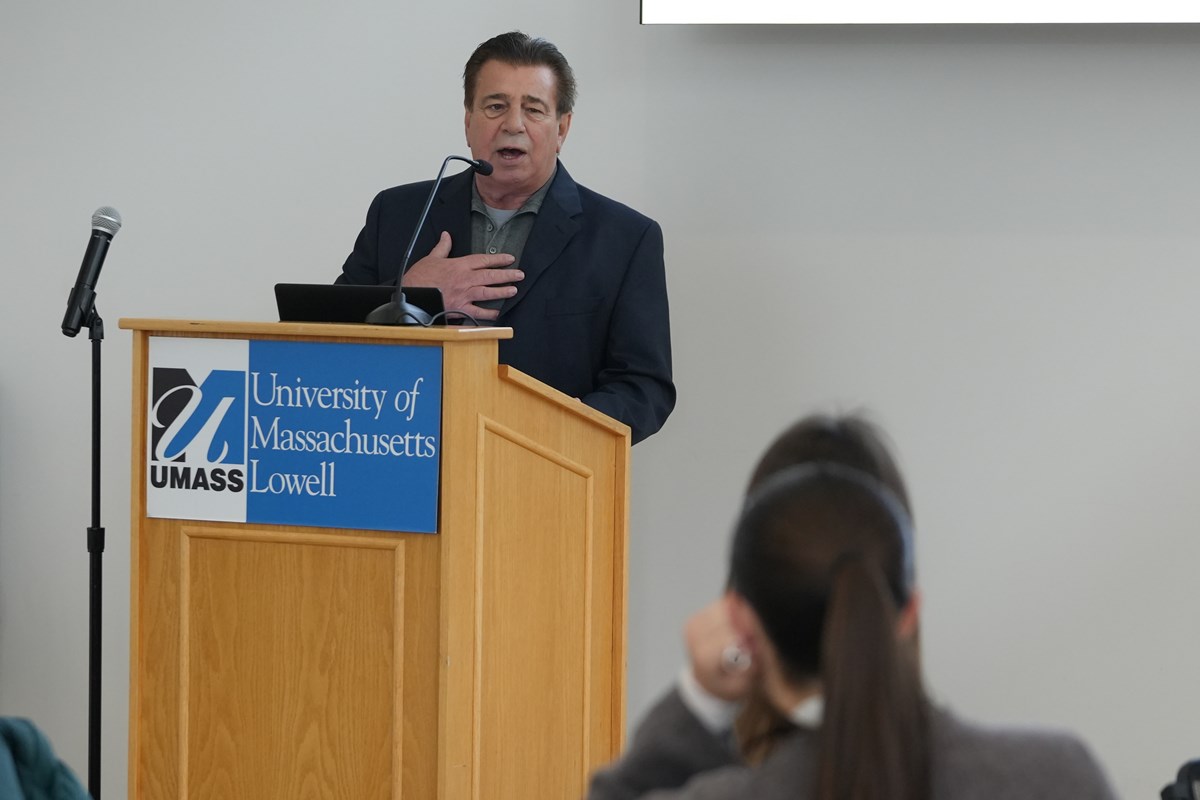 Image by Brooke Coupal
Image by Brooke Coupal
An idea coined the “Carbon Diet,” created by students Alanna Smith, Brianna Bowlby and Bethany Barstow, was the favorite among the crowd, who voted for the challenge winner following the presentations. Provost Joseph Hartman awarded certificates to the students, who also received a first-place prize of $750. Teams placing in second and third each received $450.
The “Carbon Diet” aims to reduce the consumption of meat and animal-based products by 25% at campus dining halls, resulting in the reduction of nearly 150,000 pounds of CO2 emissions in 10 weeks based on the number of undergraduates who live on campus.
“Just within 10 weeks, our plan surpasses the 10,000-pound goal,” said Smith, a mechanical engineering Ph.D. student, who developed the project last semester in the Climate Change: Science, Communication, Solutions course taught by Environmental, Earth and Atmospheric Sciences Prof. Juliette Rooney-Varga.
To encourage students to decrease their meat intake, the team would hand out punch cards that would earn students a free coffee or tea after they collected seven punches for eating vegetarian or vegan meals. The team would also educate students on food choices through posters while working to increase the quantity of local food in dining halls.
The winning team did not have to wait long to move forward with their idea, as UML Dining Operations Manager Tabatha Garnett was in the audience, ready to talk.
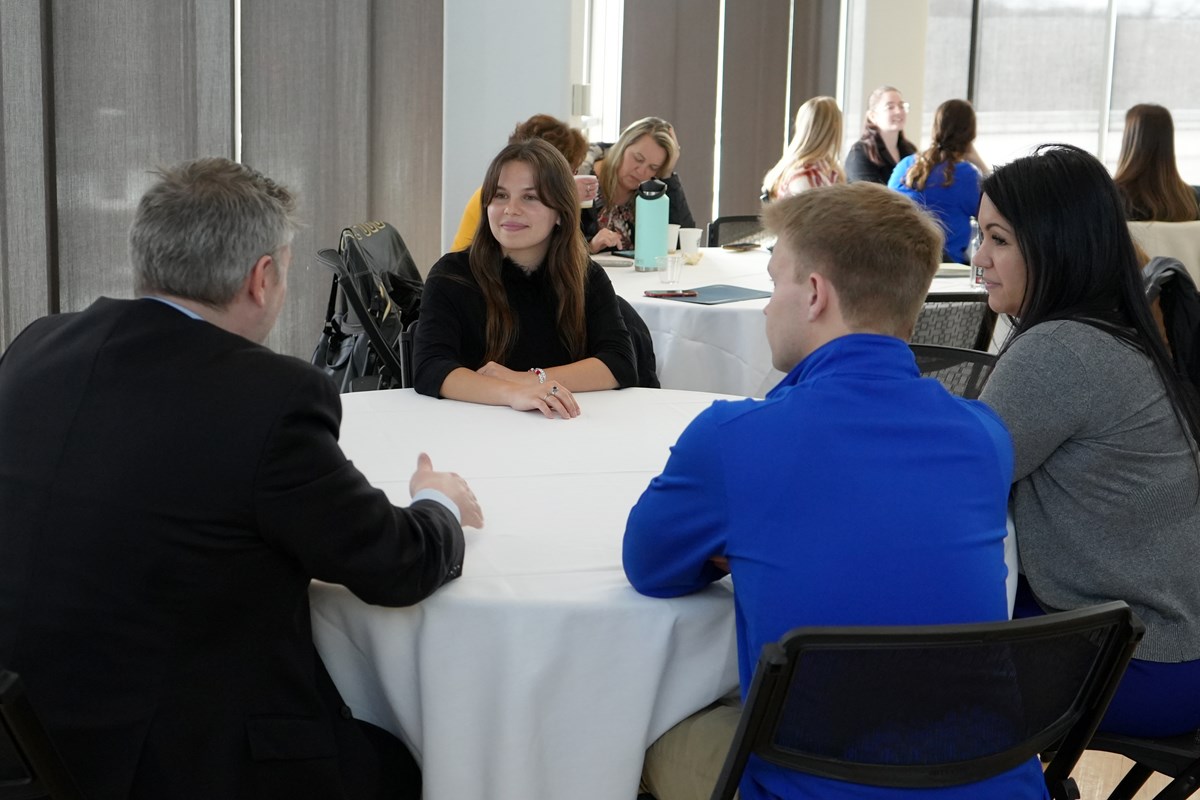 Image by Brooke Coupal
Image by Brooke Coupal
Members of the Office of Transportation Services were on hand to talk with the second-place team, who pitched the idea of boosting carpooling by paying drivers to drive their classmates to and from campus. Environmental science senior Julia Franey, who worked alongside students Aidan Cahill and Jake Heihsel, came up with the idea after seeing the success of a similar initiative at the University of Minnesota, where she interned for their Cedar Creek Ecosystem Science Reserve last summer.
“I’m very passionate about sustainability,” she said. “I enjoyed doing this project and figuring out which ways we can cut CO2 emissions.”
While speaking with Franey, Jon Victorine, executive director of administrative services and integrated security, contemplated ways in which the university can improve upon the existing on-campus carpool program, which gives carpoolers access to premium parking at reduced rates.
“Parking can be a pretty dry topic, so the fact that students are showing interest in it and putting a positive light on it is refreshing,” he says.
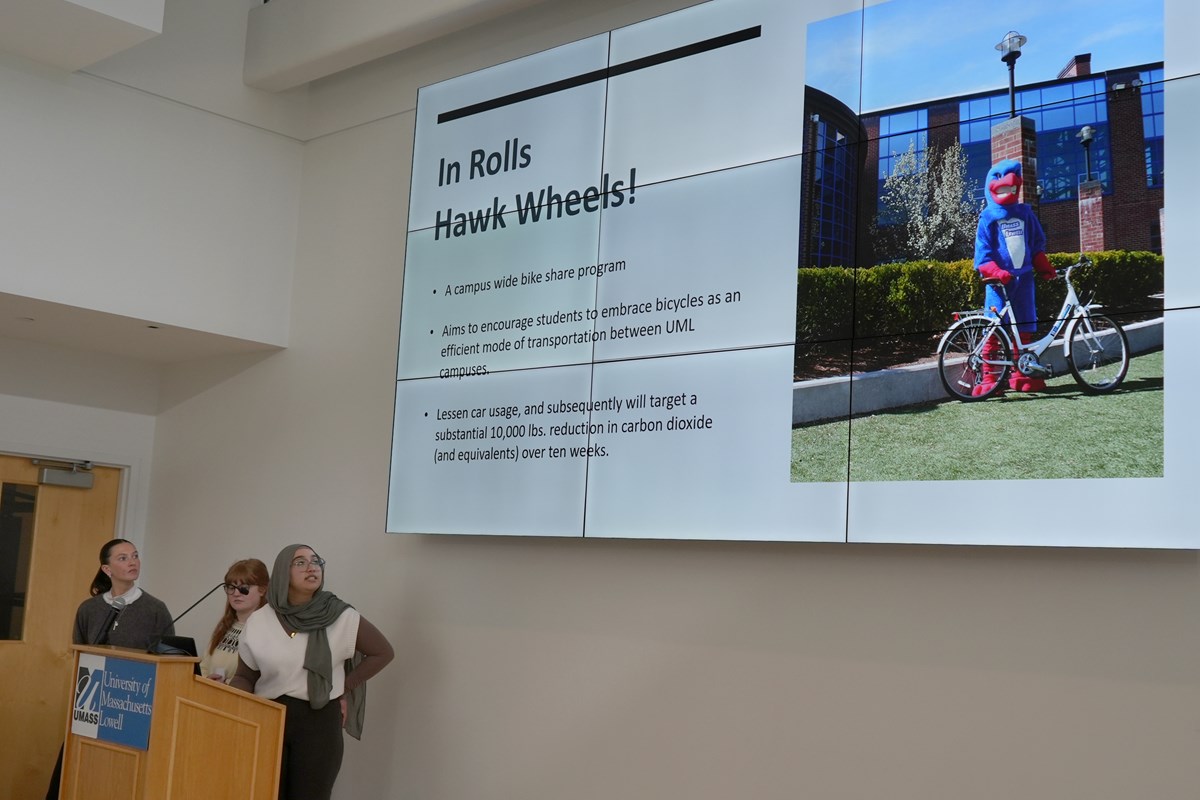 Image by Brooke Coupal
Image by Brooke Coupal
The third-place team, which included students Aya Oulal, Catherine Kleeman, Dennis Puente and Keely O’Beirne, pitched a new bike-share program that they called “Hawk Wheels.” The program would seek to increase the availability of bikes and docking stations while expanding existing bike lanes through a partnership with the city of Lowell.
Like Victorine, Kevin Soleil, the assistant director of outdoor and bicycle programs, sees the Climate Mitigation Challenge as an opportunity to foster a collaboration that could help enhance the university’s existing Free Wheelers bike-share program.
“If we work together, we have a better chance of making the program a success,” he says.




